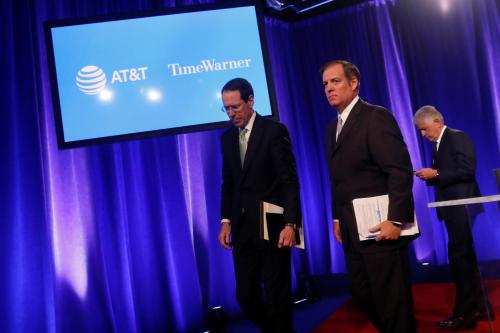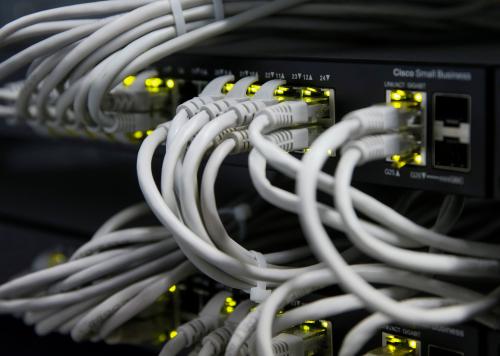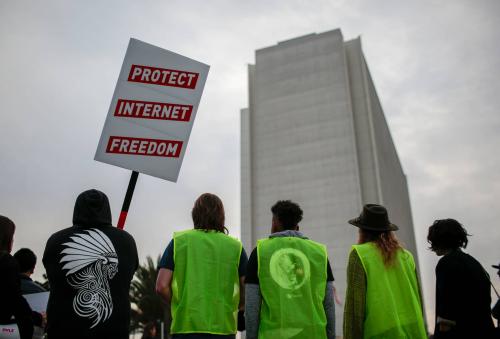Tom Wheeler served as the 31st Chairman of the Federal Communications Commission from 2013-2017, during which time the FCC passed the Open Internet Rule.
The front-page story in The Wall Street Journal announced, “Walt Disney Co. just became the biggest cord-cutter Hollywood has ever seen.” The iconic company announced it was starting two online streaming services that will bypass its traditional cable television distribution.
Thank you, Open Internet Rule!
The move to offer ESPN and Disney content direct to consumers, “rather than through [cable] services that…serve as gatekeepers to audiences” follows on the success of other direct-to-consumer broadband services such as CBS All-Access.
The sine qua non that made it all possible was the FCC Open Internet Rule that the cable operators cannot deny, degrade or deprioritize Disney access to their broadband service, even when it is competitive to their cable service. This is the very same rule that the Trump FCC, at the request of the lobbyists for the big broadband companies, has announced an intention to eliminate. And the very same rule that Republican legislators are pushing content providers to help them scuttle.
Fascinatingly, one of the Open Internet’s biggest opponents, AT&T, also benefits from the Open Internet rule preventing AT&T’s DirecTV service – a direct competitor to cable – from being discriminated against on a cable system’s broadband capacity.
Yet, the Republicans in Congress and the Trump FCC continue to push to eviscerate the rule that is the law of the land and working quite well.
“Republican House leadership told Facebook, Google and Amazon that overly aggressive net neutrality activism [i.e., opposition to the Republican gutting effort] could make it harder to work together on other policy issues the firms care about,” Axios reported. If this were The Godfather instead of Washington, such a threat would be called extortion.
And speaking of The Godfather, the genius behind it, Francis Ford Coppola, wrote the Trump FCC in opposition to their effort to gut the existing rules. “The Internet was conceived and designed to be a free medium, with network neutrality assured and the resurgent power of big business held in check on behalf of the public’s greater interests. Coppola wrote, “I assure you that none of the films I or my contemporaries are known and celebrated for could exist today in such a climate.”
Despite the Republicans’ holy war in behalf of the half a dozen broadband Internet Service Providers (ISP) who dominate the market, the benefits from the Open Internet Rule accrue to everyone.
Consumers – who seldom have a choice between competing ISPs – benefit because the broadband providers are prohibited from acting as gatekeepers, determining what consumers see and assessing extra charges for certain services (like they do when operating as cable companies).
Innovators and the growth economy that produces half of all new American jobs benefit because they have open access to the entire online marketplace without having to worry that the broadband company would charge them extra or favor a deep-pocketed incumbent who could pay a special fee – or even, as increasingly the case, favor the ISP’s own video content.
Americans’ choice of video programming has exploded thanks to open access to online households. The critics talk of a golden age of scripted drama. It is happening because producers like Netflix and Amazon Prime – and now Disney – can reach consumers directly through an open Internet.
Even the handful of broadband companies that control most Americans’ access to the Internet, yet oppose meaningful Open Internet rules, have seen their revenues, profits, and stock prices rise since the rule was adopted.
Now venerable Walt Disney, home of everything from ESPN to Star Wars, is set to benefit from unfettered broadband access to American consumers that is enabled by the Open Internet Rule. Not only will the ISPs not be able to block, throttle or deprioritize Disney’s traffic, but also the so-called General Conduct part of the Rule prevents clever lawyers from inventing loopholes from the continuing obligation to provide open access.
The Open Internet Rule – especially the General Conduct Rule portion – is like Disney’s famous character Jiminy Cricket, who acted as Pinocchio’s conscience. As the Jiminy Cricket of the Internet Age, the Open Internet Rule sits on the shoulder of broadband providers to make sure they do the right thing.







Commentary
The Open Internet Rule expands online streaming video options
August 15, 2017